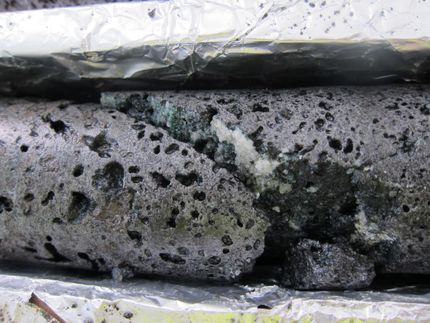Emissions pricing revenues could overcompensate profit losses of fossil fuel owners
Yet the instrument of pricing global CO2 emissions could generate a revenue of 32 trillion US dollars over the 21st century, exceeding by far the 12 trillion US dollars reduction of fossil fuel owners' profits, according to a study now published by scientists of the Potsdam Institute for Climate Impact Research. The analysis of the interference of CO2 emission pricing with fossil fuel markets adds key information to the debate on macro-economic effects of climate change mitigation.
"Implementing ambitious climate targets would certainly scale down fossil fuel consumption, so with reduced demand their prices would drop," says Nico Bauer, lead-author of the study. "The resulting profit loss would be overcompensated by revenues from auctioning emissions permits or taxing CO2, which are two of the possible instruments of climate policy." They would set strong incentives to reduce greenhouse-gases. The present study – for the first time - provides a full characterization of the fossil fuel markets and the impacts of climate policies. "We were surprised to find that in fact revenues from emissions pricing were found to be at least twice as high than the profit losses we estimate for the owners of fossil fuels."
"There might be many appetites for the money"
Still, this holds at the global level only. On the national level, things look different, the scientists point out. Fossil fuel income depends on natural endowments, which are not distributed equally across the world. The distribution of revenues from emissions pricing depends on how climate policies are implemented on a national and international level. "Moreover, revenues from pricing carbon cannot be simply seen as a compensatory fund for the loss of income from fossil fuels," says Bauer. "This is because climate policy results in higher energy prices for households and companies, which lead to a – rather small – reduction of economic output. So there might be many appetites for the money raised from CO2 pricing."
"We know that fossil fuel owners will lose out on profits, but the big question is who will benefit from the new revenues generated by climate policy? It will fall to policy makers and society at large to decide this," adds Elmar Kriegler, project leader and co-author of the study. "It would be interesting to ask for the effect of using the revenues from carbon pricing to finance infrastructure investments in developing countries."
Different effects on coal and oil
Under the scenario of climate policy, coal consumption is reduced much stronger than oil and gas consumption. A large share of the coal reserve would never be used, while the use of oil and gas would still exceed their conventional reserves – leaving underground only the vast amounts of unconventional oil and gas resources. However, since coal is plentiful and relatively easy to substitute by other forms of energy, like renewables for power generation, the profit losses from reduced coal use are much smaller than for oil and gas. The highest profit losses occur in the oil market. Oil is relatively scarce and hard to substitute, for instance in the transport sector. So there normally is a lot of money to be made – and hence a lot of money to be lost in the case of effective greenhouse-gas reductions.
Original publication
Other news from the department science

Get the chemical industry in your inbox
By submitting this form you agree that LUMITOS AG will send you the newsletter(s) selected above by email. Your data will not be passed on to third parties. Your data will be stored and processed in accordance with our data protection regulations. LUMITOS may contact you by email for the purpose of advertising or market and opinion surveys. You can revoke your consent at any time without giving reasons to LUMITOS AG, Ernst-Augustin-Str. 2, 12489 Berlin, Germany or by e-mail at revoke@lumitos.com with effect for the future. In addition, each email contains a link to unsubscribe from the corresponding newsletter.
Most read news
More news from our other portals
Last viewed contents
NREL research advances understanding of photoelectrodes

Soft decoupling of organic molecules on metal

Microplastics: A Trojan Horse for Metals - Study shows that microplastics can serve as a transport vehicle for metals in the environment

LANXESS brings expanded cresol plant on stream - EUR 20 million investment




























































